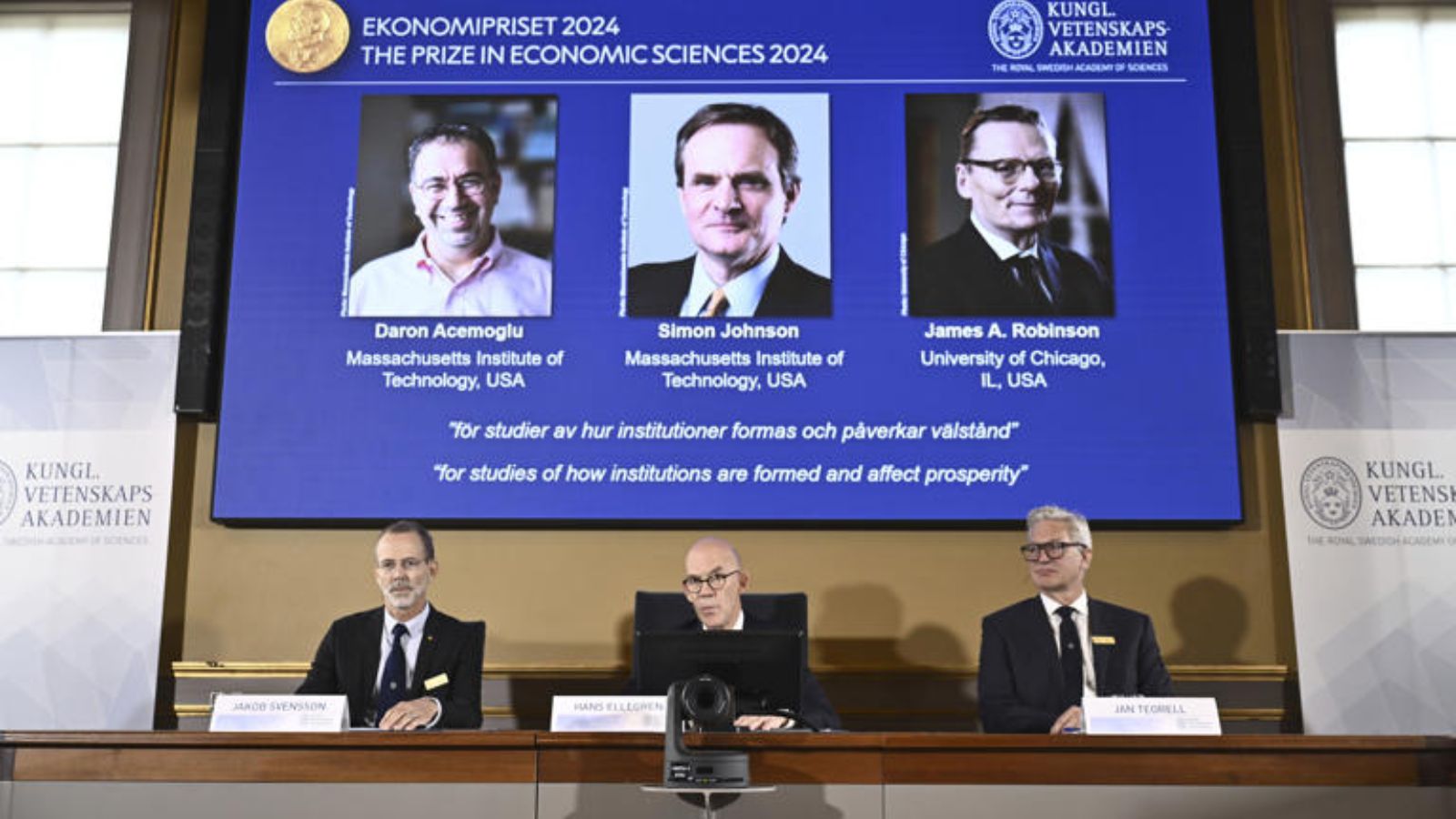The Sveriges Riksbank Prize in Economic Sciences in Memory of Alfred Nobel for 2024, aka the Nobel Prize in economics, was awarded to Daron Acemoglu and Simon Johnson of MIT and James Robinson of the University of Chicago. Their work revisits the original question raised by economics −why some nations are wealthy and others not. In a series of papers, the three winners highlight the role of economic and political institutions in determining the prosperity of nations and offer insights about how institutions are formed. Colonialisation according to the trio has shaped the institutional structures of many nations and hence can explain their prosperity or lack of it.
In two of their groundbreaking papers published in the American Economic Review in 2001 and the Quarterly Journal of Economics in 2002, Acemoglu, Johnson, and Robinson argued that European colonisation changed the course of relative economic development of countries through the type of institutions the colonisers set up in colonies. The argument is as follows: European colonisers established two kinds of institutions based on the disease environment of the colony.
In countries where the disease environment posed a mortal threat to the European settlers and was unsuitable for settling down, they created extractive institutions with the objective of transferring the maximum amount of resources to the home country. But there were also countries whose disease environment did not pose mortal threats. Colonisers chose to settle in such countries establishing strong private property rights and checks on the government.
Another factor influencing the choice of institutions was the relative incomes of former colonies. The colonisers favoured extractive institutions in relatively prosperous places which went hand in hand with high population density. The colonisers put the large labour force to work in mines and plantations and also took over the existing tax system of these relatively prosperous places. However, in sparsely populated poor places, the European colonisers decided to settle in large numbers, setting up good institutions that protected private property rights. As the authors note in their 2002 paper, “For example, the Mughals in India and the Aztecs and Incas in the Americas were among the richest civilisations in 1500, while the civilisations in North America, New Zealand, and Australia were less developed.” Not surprisingly, both types of institutions continued to persist even after a colony became independent.
The “institutions hypothesis” proposed by the trio can explain the differences in economic prosperity across nations. Simply put, incentives and opportunities for investments can promote economic development and the protection of private property rights is a pre-condition for investments which ensures economic prosperity. Extractive institutions on the other hand are inimical to investments and growth, as they disincentivise productive endeavours. Yet, such institutions can emerge and even persist since they provide rent extraction opportunities to the political elites.
Consistent with their arguments, the authors empirically document a strong positive association between institutions and economic prosperity across nations as well as the “reversal of fortunes” by showing that countries that were relatively richer prior to European colonisation are poorer today and vice versa. The book, Why Nations Fail: The Origins of Power, Prosperity, and Poverty by Acemoglu and Robinson provides an excellent introduction to these ideas.
In 1993, Douglas North and Robert Fogel were awarded the Nobel Prize in Economic Sciences for giving economic history a new lease of life by using theoretical and quantitative methods to explain economic and institutional change. North, often cited by the 2024 winners, emphasised the role of institutions in economic growth by arguing that well-defined property rights and the rule of law are essential for economic growth. This year’s Nobel Prize builds on the works of North and other institutional economists. In an elegant manner, it explains institutional differences and hence prosperity by using colonisation as an exogenous shock to the existing economic system.
The insights of Acemoglu, Johnson and Robinson continue to be pertinent. With income inequality rising, both across and within nations for the last several decades, the importance of better, inclusive institutions cannot be overstated. Not only do we see more fragile and fractured societies, but the distributional consequences of bad institutions can also be felt in persistent hunger and growing malnutrition problems. Extractive institutions also have important implications for other compelling issues like climate change and sustainable development as the lack of appropriate institutions can lead to over-extraction of natural resources expediting climate change.
Institutional quality, measured by indicators like the strength of democracy, the rule of law, press freedom, and the absence of corruption has seen uneven progress around the world in the last decade. While some countries have made modest progress, others have experienced stagnation or even worsening of institutional quality which is likely to exacerbate the host of interconnected problems already mentioned.
The work of this year’s Nobel Prize winners tells us why designing good institutions is crucial for economic growth and is truly a wake-up call for policymakers around the world.
Jha is Associate Professor of Finance, Le Moyne College, Syracuse and Sarangi is Professor of Economics, Virginia Tech



